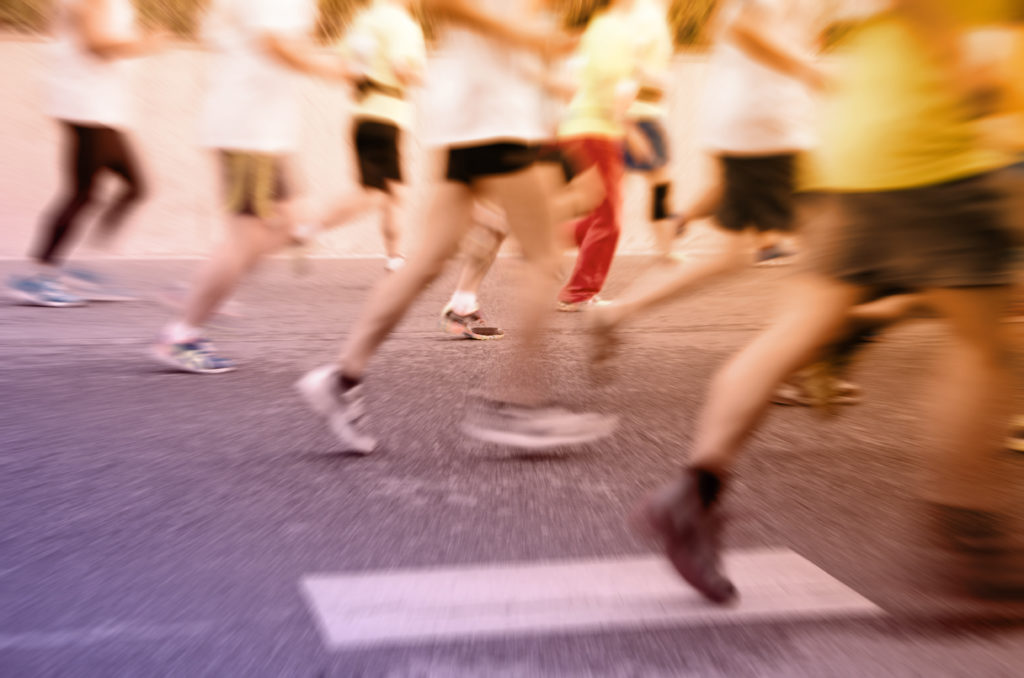Quick Hits
Daily brief research updates from the cognitive sciences

This is an older study (2017) I came across and found fascinating. As many of you regular readers will know I have reported many times on the benefits of exercise. But this study was fascinating in that it looked at the contagion effect of exercise i.e. do people affect each other with the exercise bug?
To answer that question the researchers analyses data from a global network of 1.1 million runners over a period of five years and in addition 3.4 million social network ties. That’s a lot of data! What did they find?
Well, yes there is social contagion, runners do infect each other but the specifics are quite interesting. For example, it was found that both men and women influence men (men more than women) but that men do not influence women. Another interesting influence is that of being faster or slower runner. It was found that those who were slightly slower of faster influenced other most.
Read the paper for more interesting insights but of note is that exercise (in this case running) is infectious but how infectious depends on certain other factors such as closeness, gender, and how good you and your friends are – or not.

Andy Habermacher
Andy is author of leading brains Review, Neuroleadership, and multiple other books. He has been intensively involved in writing and research into neuroleadership and is considered one of Europe’s leading experts. He is also a well-known public speaker speaking on the brain and human behaviour.
Andy is also a masters athlete (middle distance running) and competes regularly at international competitions (and holds a few national records in his age category).
Reference
Aral, S., and Nicolaides, C. (2017).
Exercise contagion in a global social network.
Nat. Commun. 8.
doi:10.1038/ncomms14753.
More Quick Hits
How Gratitude between Co-Workers Lowers Stress and Increases Performance
Quick HitsDaily brief research updates from the cognitive sciences ratitude is a nice thing to have, I think we all agree on that. But when it comes to the workplace some may see it is just being nice, and not being focused enough on the hard...
Brain Scans Can Predict Your Political Affiliation
Quick HitsDaily brief research updates from the cognitive sciences rain scanning of political partisans is not new and it has long been reported that brain scans can predict political affiliation. But those studies were scans of political partisans...
Children with Same-Sex Parents Are Socially Well-Adjusted
Quick HitDaily brief research updates from the cognitive sciences his is not the first study to report that children of same-sex parents are well adjusted, there are plenty, but it is one of the first to be representative and hence gives some...
Simple Exposure to New Things Makes Your Brain Ready to Learn
ouldn’t it be great if we could learn things with no effort? Well, actually we often do, and children learn vast quantities of information, and knowledge with little to no effort – think of how well we learn languages which become fiendishly...
So, Can Cranberries Improve Memory?
tend to be hesitant to report on studies of single foods doing amazing things (because many do), but this piece of research still caught my eye. So, what did this group of researchers from the University of East Anglia find? Well, they...
The Real Problem with Social Media: It Induces Dissociative States
Quick HitsDaily brief research updates from the cognitive sciences ocial media seems to hijack our brains – or at least according to popular narratives. Most of us have experienced this where you get stuck in an endless stream of content,...






